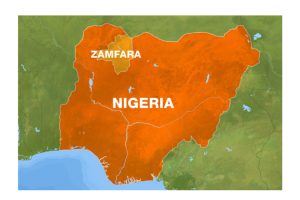Dike Onwuamaeze
An eminent economist and Chief Executive Officer of Financial Derivatives Company Limited (FDC), Mr. Bismarck Rewane, has identified investment-led growth strategy as the most effective option for Nigeria’s economic growth.
Rewane stated this in his presentation at a recent board strategy retreat titled: ‘Economic Outlook 2024: Investment Opportunities and Risks,’ held in Lagos where he stated that “Nigeria needs an investment-led strategy” to drive its economic growth rather than relying on consumption, export and government-led strategies.
He said the federal government could attract more investment by increasing interest rates to build investors’ confidence because “over the years, the gap between the rate of inflation and interest rates has been wide.”
He argued that while the average inflation rate was 16.5 per cent, the average effective interest rate for Treasury Bills and stock market return remained at 8.13 per cent and 8.67 per cent, respectively even though the maximum lending rate and microfinance lending rate were 29 per cent and 36 per cent, respectively.
Rewane pointed out that the effect has been low investor confidence in the economy.
“Investment is dependent on the level of confidence in the economy. Investor confidence in Nigeria is low, primarily due to low sovereign credibility and poor foreign exchange market structure,” he said.
This low confidence, according to him, is exemplified by the share of portfolio investments in the Nigerian equity market where the foreign investors’ component of the market has dropped by 5.45 from 16.67 per cent in 2022 to 11.22 per cent in 2023.
He highlighted that low investment and low productivity are two sides of the same coin since low investment would lead to low capital formation, which would result in low productivity and low income in the economy.
Rewane declared that “no savings” would mean “no investment” and invariably “no growth” in the economy.
He said: “Countries with low savings are known for low investment and constrained growth.”
He argued that savings mobilised from households, businesses and governments could be deployed to create private and public investments, which would lead to increased domestic production for local consumption and exports.
According to him, the flow of savings to productive investments would engender macroeconomic stability that would moderate inflationary pressures, stabilise exchange rates and yield accelerated economic growth.
He said: “National savings contribute to the pool of funds available for investment,” and pontificated that the “Nigerian economy is growing below its potential primarily due to the underutilisation of its resources.”
He added that “structural bottlenecks and market inefficiencies are limiting the country’s economic growth (while) high money supply saturation, Naira depreciation and increased energy costs are fueling inflationary pressures.”
Moreover, “policy inconsistencies are supporting low investors’ confidence in Nigeria.”
Rewane observed the irony that Naira is “depreciating despite a positive current account balance mainly due to large encumbrances on the foreign reserves and constrained inflows” despite the reduced fiscal pressures since subsidy reduction has lowered fiscal deficit.
The revered economist pointed out that Nigeria still has a choice to commit to market reforms by launching market-driven policies that would reduce money supply, increase interest rates, and enthrone efficient FX market mechanisms.
Source
Disclaimer: No copyright infringement intended. All rights and credits reserved to respective owner(s).





















Add Comment